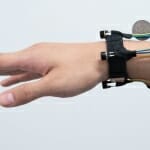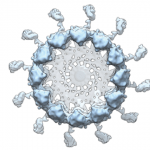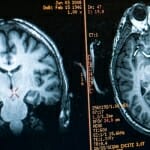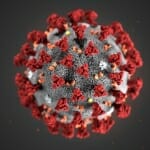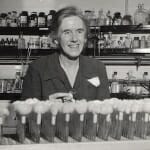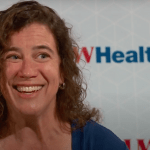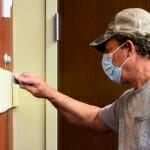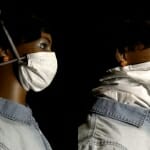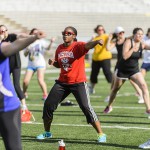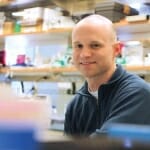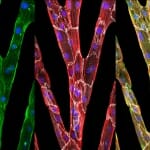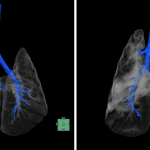Category Health & Wellness
3D-sensing wristband opens possibilities for sign language translation, virtual reality
The researchers dubbed their device FingerTrak. It can sense and translate into 3D the many positions of the human hand, including 20 finger joint positions. Read More
Research Core Revitalization Program funds upgrades to shared resources on campus
These resources allow the university to support many investigators at once by maintaining and upgrading high-end instrumentation that would be cost-prohibitive for any single lab. Read More
COVID questions: Antibody disappearance, teen dating, voting
"In general, most people will make antibody, but this will decline over time. We are working to discover the rate to which this decline occurs." Read More
UW’s Elizabeth McCoy was a pioneer of 20th century microbiology
As a woman in a field dominated by men, McCoy rarely received the accolades that her male colleagues did, but by all accounts, she felt welcome at the university and respected by her peers. Read More
9 in 10 men want their doctors to ask about domestic violence
The fact that few young men are asked about the subject suggests physicians have an opportunity to begin more conversations about domestic violence and potentially intervene, says Tova Walsh, who led the study. Read More
A pediatrician offers tips for talking with teens about COVID-19
Children and teens may need extra support from caregivers as they react to and work through the unique changes and challenges of life during an outbreak. This is especially true as COVID-19 cases across the country and communities create, implement and adjust restrictions. Read More
Public Health Madison & Dane County releases new orders requiring face coverings
Effective on Monday, everyone age 5 and older will be required to wear a face covering or mask when in any enclosed building where other people, except for members of the person’s own household or living unit, could be present. Read More
COVID-19 testing: Know before you go
With public demand for COVID-19 diagnostic testing increasing significantly, it is important that patients and the community understand where to seek testing, depending on whether one is experiencing symptoms of COVID-19 or not. Read More
Badger Talks: Overcoming our sense of loss
Richard Davidson, founder of the Center for Healthy Minds, is known for his groundbreaking work studying emotion and the brain. On this edition of Badger Talks, he discusses how to deal with the loss we feel at this point in the pandemic. Read More
Coughing visualization illustrates the benefits of wearing a good mask
A research team made a video of a modified mannequin whose mouth releases a puff of air containing fog, in order to see how well masks contain the fog and visualize results from testing different mask styles. Read More
Study aims to help with “quarantine 15” weight management
Many people are eating more and exercising less since the pandemic began. Those who are interested can go to Partner2Lose.com to fill out an online screening form and see if they qualify. Read More
Forming genitals in boys requires complex dance between genes and hormones
The research helps us understand how genes and hormones interact to develop male reproductive systems, a step toward researching why disorders in these organs have become more common and how we might prevent them. Read More
UW–Madison and UW Health quickly launch a number of COVID-19 clinical trials
Among the latest is a study examining the potential for an existing drug to treat a serious and often deadly complication of a COVID-19 infection. Read More

